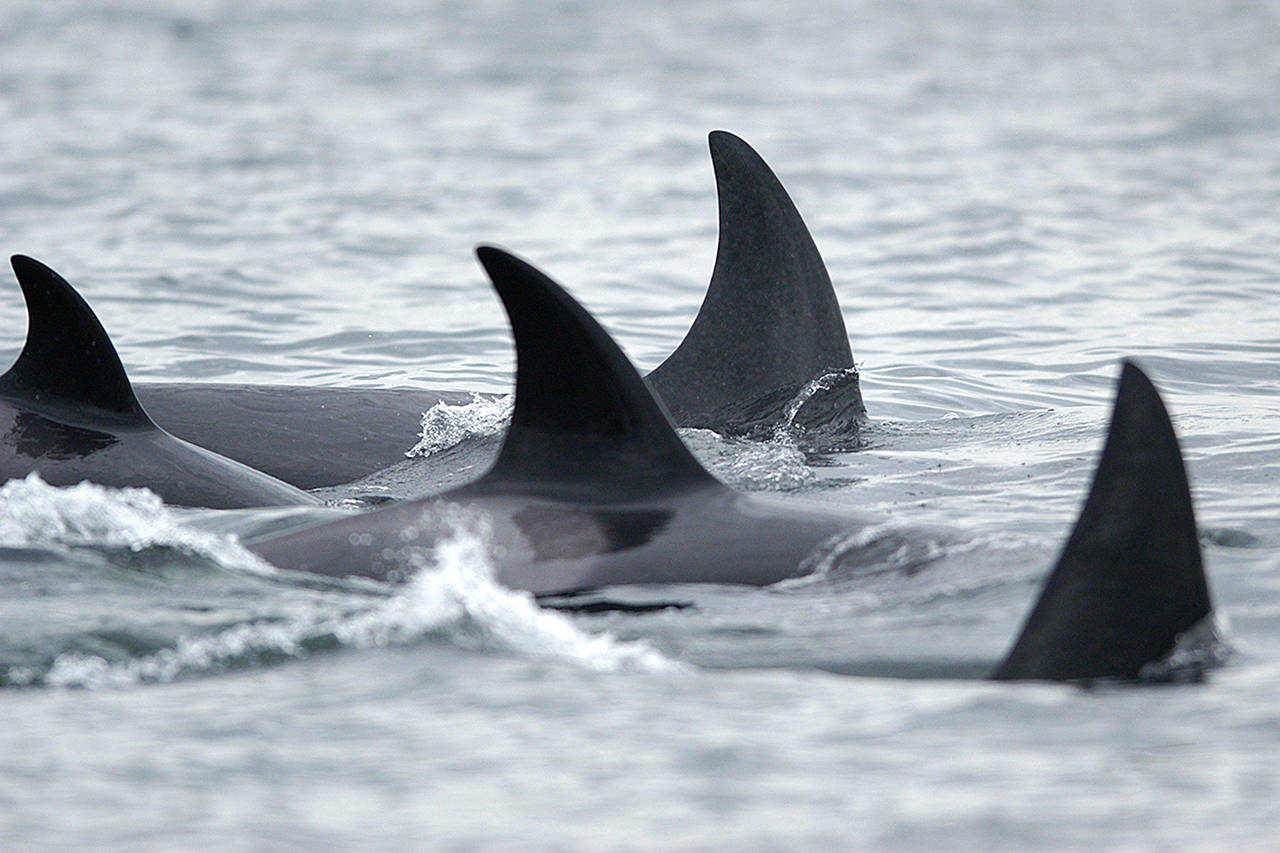SEATTLE — Restrictions on vessel traffic have helped keep more boaters farther from critically endangered southern-resident killer whales, while not harming the whale-watch industry, a new study has found.
Federal restrictions enacted in 2011 require whale-watch boats and other vessels to stay at least 200 yards away from whales. That’s doubled the buffer.
Yet whale-watch tourism continues to grow, the National Oceanic and Atmospheric Administration found.
Lack of food, high levels of contaminants in the environment, and disturbance by boat noise are the primary threats identified by the agency to the Puget Sound whales’ survival.
The boat restrictions were intended to help reduce stress on the whales, which spend less time foraging and more time traveling when disturbed by noise, researchers have found.
Boise may also cause the J, K and L pods of southern-resident killer whales to spend more energy trying to communicate and echolocate to find food.
About 400,000 people a year from more than 20 ports on both sides of the U.S.-Canada border watch whales from commercial tour boats, more than ever, said Michael Harris, former executive director of the Pacific Whale Watch Association.
Helping has been the comeback of humpback whales, which have provided reliable thrills on the water, and the healthy population of transient killer whales, the Canadian, marine mammal-eating orcas. Abundant food in the region’s booming seal population has kept their numbers high and sightings reliable.
The southern residents have been increasingly scarce in the past two seasons, perhaps because they are off hunting fish where it is more abundant.
According to the nonprofit Center for Whale Research and Orca Network, the southern residents were sighted in the San Juan Islands and Strait of Juan de Fuca area only 22 times from July to September this year, compared with 62 times in 2016. They used to be seen nearly every day from June through September.
Down to only 76 animals, the southern residents’ population is at a 30-year low.
The study found the vessel restrictions to be more effective with enforcement boats on the water, with fewer violations by recreational boaters in particular (as opposed to professional tours) when enforcement officers are present.
In the coming legislative session, Democratic state Sen. Kevin Ranker said, he will introduce legislation to provide about $500,000 to keep a dedicated enforcement boat and two Washington Department of Fish and Wildlife officers on the water five days a week in the north sound and San Juan Islands, during the prime spring and summer viewing season.



